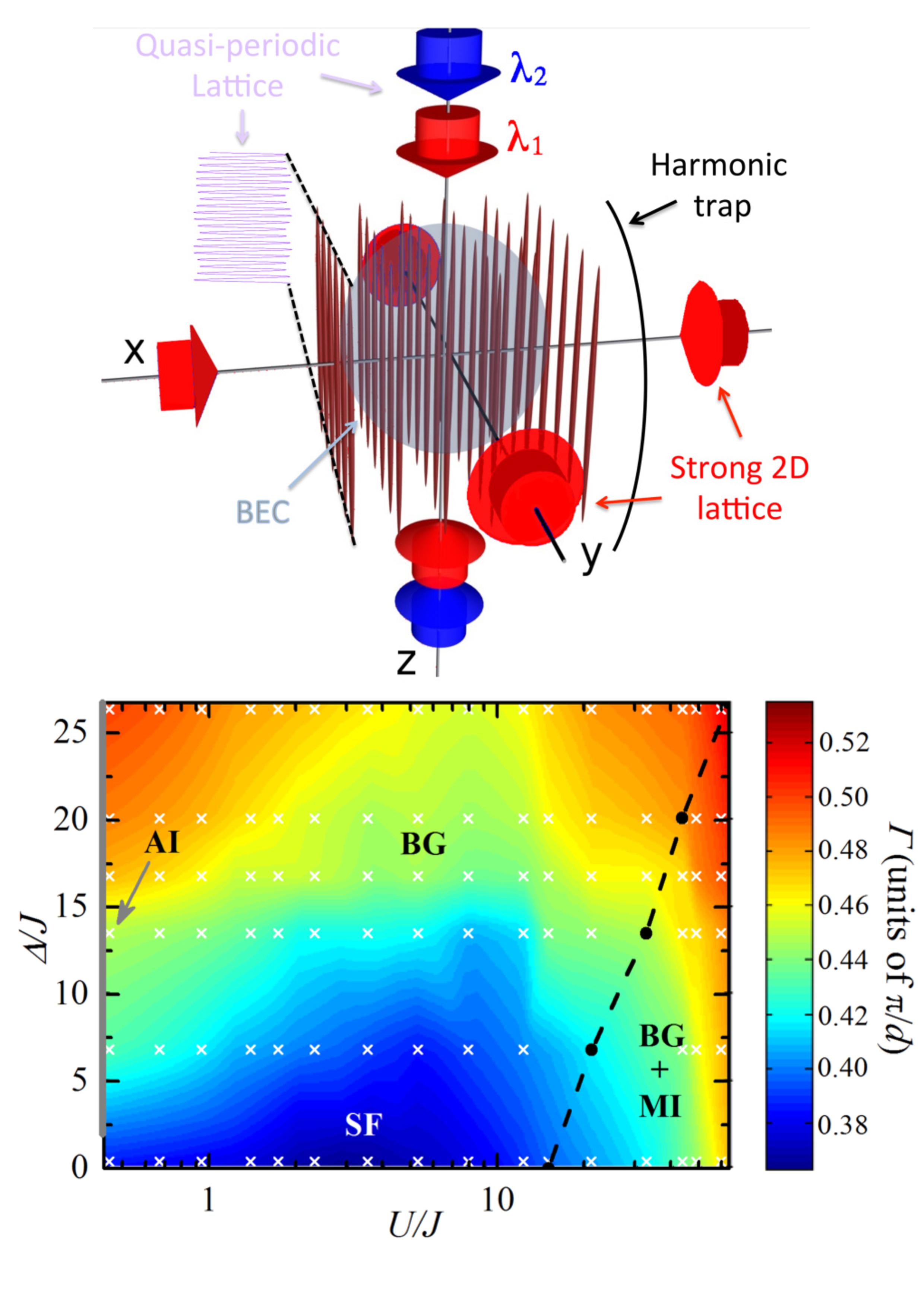 |
An open issue in quantum physics is to understand the interplay of disorder and interactions, which has been predicted to give rise to exotic states of matter such as quantum glasses or many-body localization. In a collaboration with theorists in Geneva and in Orsay, we have employed ultracold atoms with controllable disorder and interaction to study the paradigmatic problem of disordered bosons in the full disorder-interaction plane. Combining measurements of coherence, transport and excitation spectra, we have got evidence of an insulating regime extending from weak to strong interaction and surrounding a superfluid-like regime, in general agreement with the theory. For strong interaction, we have revealed the presence of a strongly-correlated Bose glass coexisting with a Mott insulator. We have analyzed the finite-temperature effects on the phase diagram by comparing experimental results to exact diagonalization for small-sized systems and to density-matrix renormalization group (DMRG) computations. At weak interactions, we have found short thermal correlation lengths, indicating a substantial impact of temperature on the system coherence. Conversely, at strong interactions, the obtained thermal correlation lengths are significantly larger than the localization length, and the quantum nature of the T = 0 Bose-glass phase is preserved up to a crossover temperature that depends on the disorder strength. Furthermore, in the absence of disorder, by comparing experimental results to quasiexact finite-T DMRG computations, we can estimate the temperature in the experimental system. C. D’Errico et al. L. Gori et al. |


Quantum simulations with a tunable Bose-Einstein condensate… We use BECs made of potassium-39 atoms, with interaction tunable via Feshbach resonances, to explore open problems in condensed-matter and few-body physics. Recently we have been studying quantitatively Anderson localization of non-interacting matter waves in disordered potentials, the interplay of disorder and interactions in low-dimensional systems, and superfluidity in bosonic wires.
